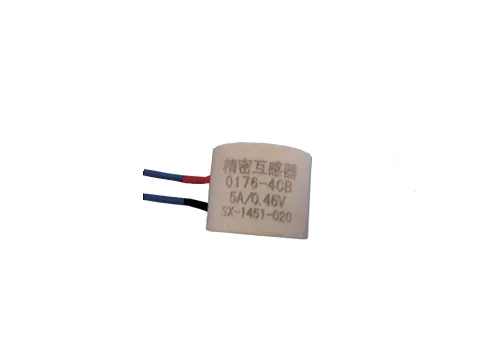Understanding the Role of Common Mode Choke Cores in Advanced Chemical Applications
In the modern landscape of chemical engineering, especially in the development of new chemical materials and nanotechnology, understanding the components that contribute to system efficiency is crucial. One such component is the common mode choke core, which plays a vital role in improving the performance of electronic systems, particularly in the realm of power electronics.
Common mode choke core
In the modern landscape of chemical engineering, especially in the development of new chemical materials and nanotechnology, understanding the components that contribute to system efficiency is crucial. One such component is the common mode choke core, which plays a vital role in improving the performance of electronic systems, particularly in the realm of power electronics.
Common mode choke cores are essential in filtering out unwanted noise and interference from electrical signals, which is particularly important in sensitive applications such as chemical processing and nanotechnology. These cores work by utilizing magnetic properties to inhibit common mode currents while allowing differential signals to pass freely. This function is critical in maintaining the integrity of data and ensuring the reliability of various processes.
The construction of common mode choke cores typically involves a ferrite material due to its excellent magnetic characteristics. Ferrite materials can be engineered at the nanoscale, leading to the development of nanocomposites that enhance electromagnetic performance. This aspect becomes significant in chemical applications where space and efficiency are at a premium. By optimizing the material composition, engineers can improve the effectiveness of common mode chokes, thereby enhancing the overall performance of electronic devices in chemical processing.
Moreover, the use of common mode choke cores can significantly reduce electromagnetic interference (EMI) in circuits, which is a common challenge in chemical manufacturing environments. EMI can disrupt sensitive equipment and lead to inaccuracies in measurements, which is detrimental to the quality of chemical products. By integrating common mode choke cores into electronic designs, manufacturers can achieve a more stable and reliable operation, ultimately leading to better product quality and process efficiency.
In the context of nanotechnology, the miniaturization of electronic components means that the need for effective noise suppression becomes even more pronounced. As devices shrink, the impact of interference can be magnified, making the role of common mode choke cores even more critical. Innovations in nanomaterials allow for the development of more effective choke cores that address these challenges, paving the way for advancements in chemical applications.
In conclusion, common mode choke cores are pivotal in enhancing the reliability and efficiency of electronic systems within the chemical industry. Their ability to filter noise and reduce interference not only contributes to the performance of chemical processes but also aligns with the growing trend of integrating nanotechnology into chemical materials. Understanding and utilizing these cores can lead to significant advancements in achieving high-quality results in various chemical applications.
Common mode choke cores are essential in filtering out unwanted noise and interference from electrical signals, which is particularly important in sensitive applications such as chemical processing and nanotechnology. These cores work by utilizing magnetic properties to inhibit common mode currents while allowing differential signals to pass freely. This function is critical in maintaining the integrity of data and ensuring the reliability of various processes.
The construction of common mode choke cores typically involves a ferrite material due to its excellent magnetic characteristics. Ferrite materials can be engineered at the nanoscale, leading to the development of nanocomposites that enhance electromagnetic performance. This aspect becomes significant in chemical applications where space and efficiency are at a premium. By optimizing the material composition, engineers can improve the effectiveness of common mode chokes, thereby enhancing the overall performance of electronic devices in chemical processing.
Moreover, the use of common mode choke cores can significantly reduce electromagnetic interference (EMI) in circuits, which is a common challenge in chemical manufacturing environments. EMI can disrupt sensitive equipment and lead to inaccuracies in measurements, which is detrimental to the quality of chemical products. By integrating common mode choke cores into electronic designs, manufacturers can achieve a more stable and reliable operation, ultimately leading to better product quality and process efficiency.
In the context of nanotechnology, the miniaturization of electronic components means that the need for effective noise suppression becomes even more pronounced. As devices shrink, the impact of interference can be magnified, making the role of common mode choke cores even more critical. Innovations in nanomaterials allow for the development of more effective choke cores that address these challenges, paving the way for advancements in chemical applications.
In conclusion, common mode choke cores are pivotal in enhancing the reliability and efficiency of electronic systems within the chemical industry. Their ability to filter noise and reduce interference not only contributes to the performance of chemical processes but also aligns with the growing trend of integrating nanotechnology into chemical materials. Understanding and utilizing these cores can lead to significant advancements in achieving high-quality results in various chemical applications.








